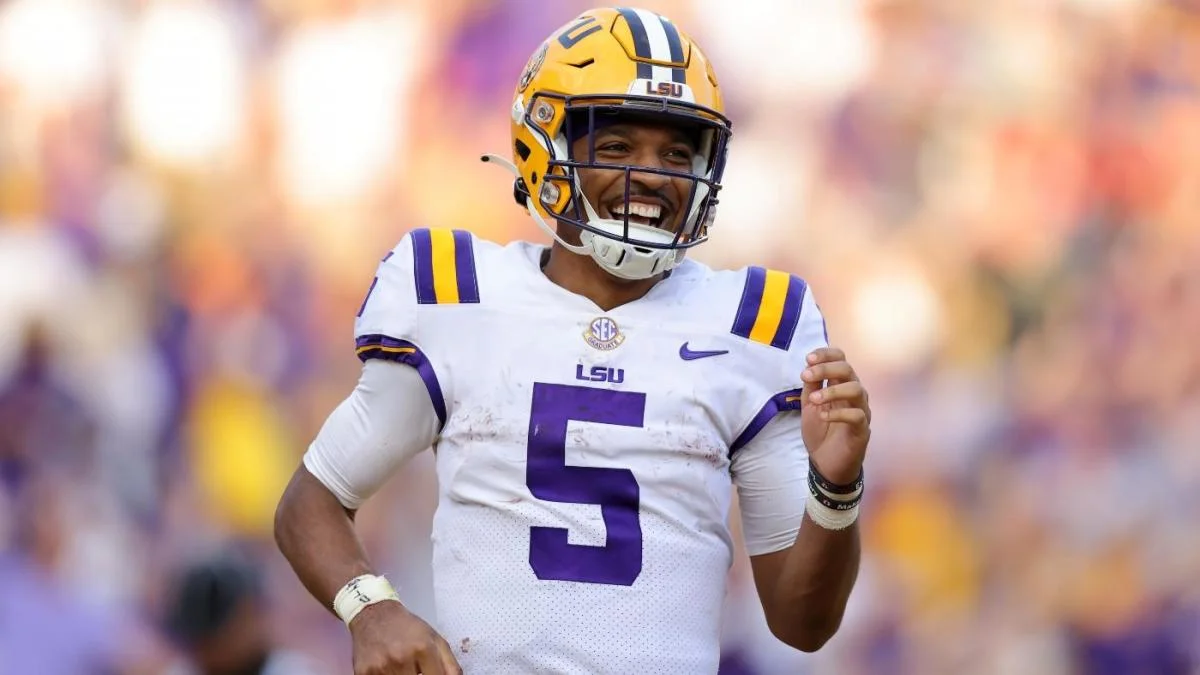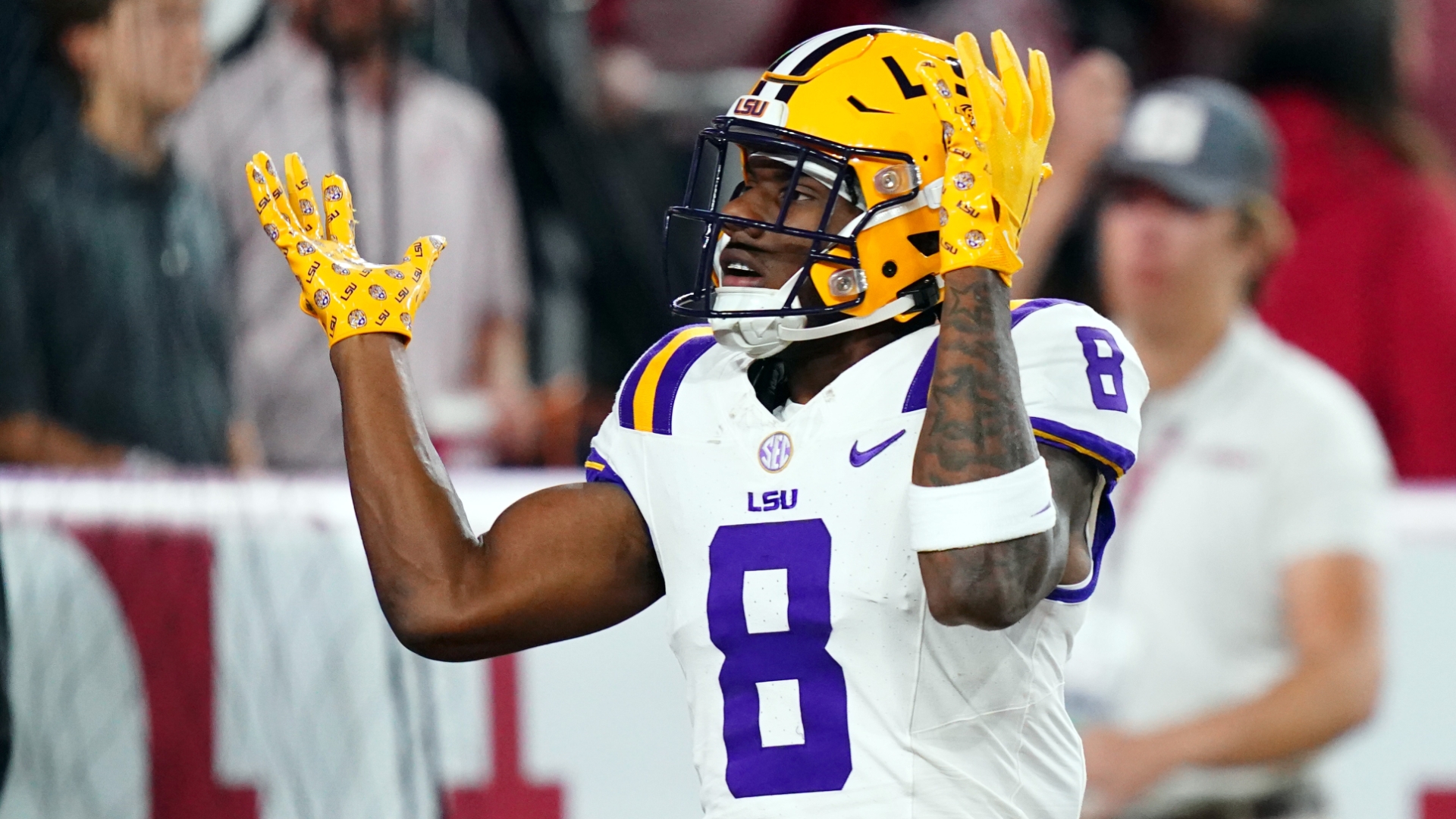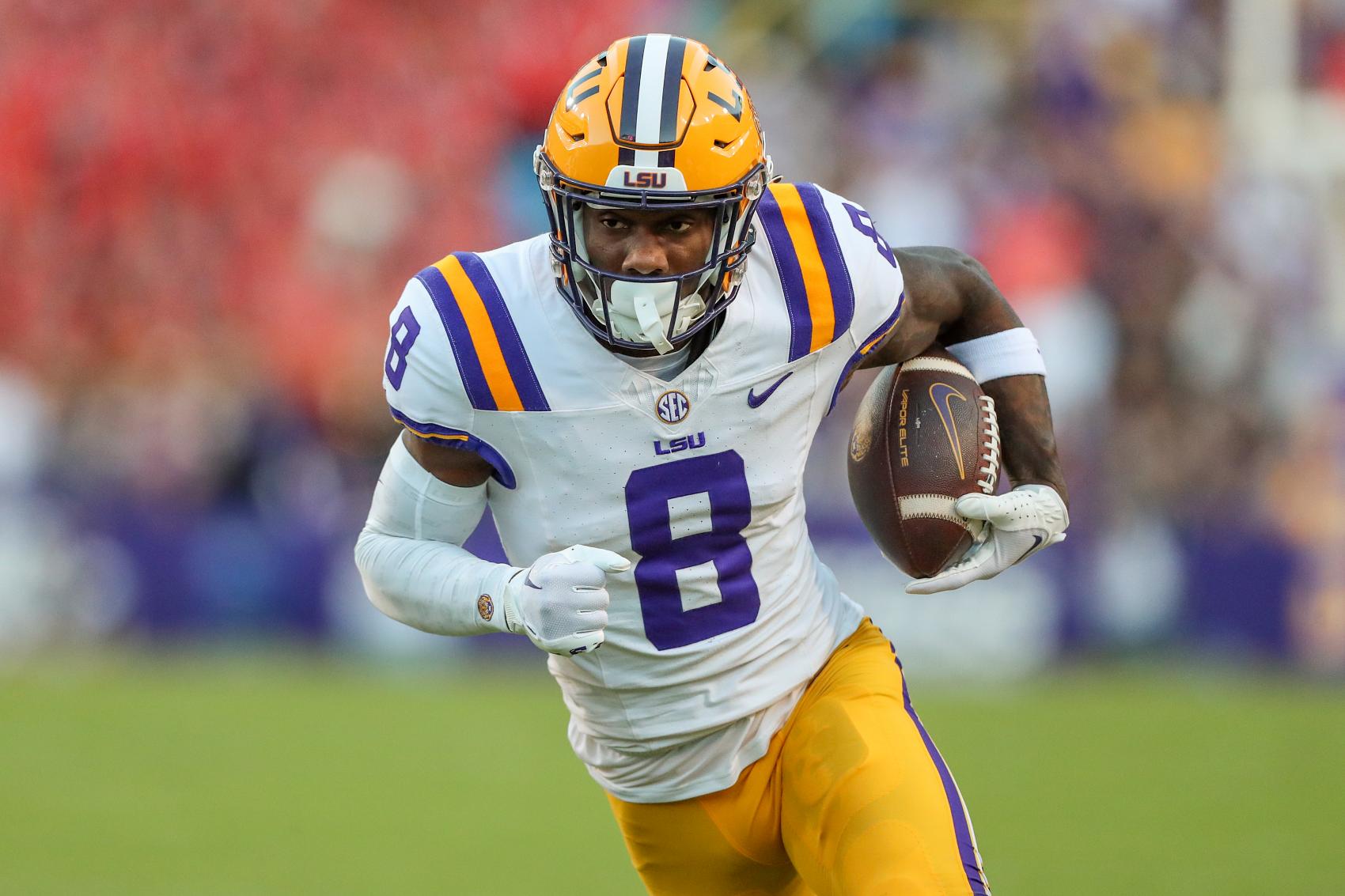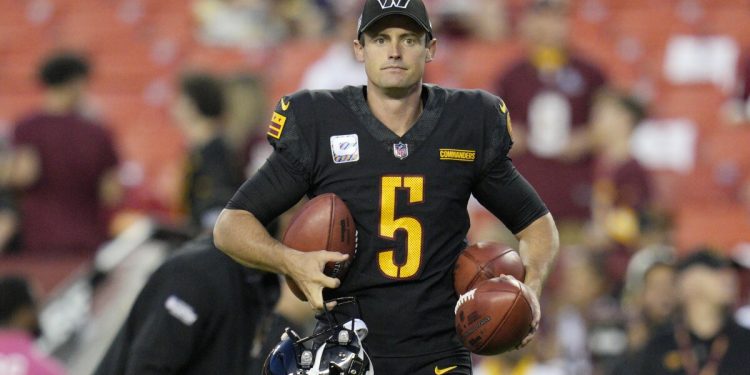In the high-stakes world of the NFL, where competition and big money go hand in hand, there lies a lesser-known battleground—private bets among players. The recent revelation on The Pivot podcast by Giants wide receiver Malik Nabers about his $10,000 bet with Commanders rookie Jayden Daniels over who would win the offensive Rookie of the Year award sheds light on an aspect of NFL culture that is usually kept under wraps.

A Quiet Agreement Between Malik Nabers and Jayden Daniels Unveiled
The bet between Nabers and Daniels, which remained a secret until disclosed publicly, highlights a fundamental rule in player wagering: the power of silence. The simple solution in situations like this is to keep quiet,” was the lesson learned when Nabers shared details of the bet. Had it remained a secret, the arrangement would have continued undisturbed, with the loser quietly handing over $10,000 to the winner.
Watching a replay from last year and saw Penn State transfer cornerback Jalen Kimber breaking up a pass from No. 2 overall pick Jayden Daniels to No. 6 overall pick Malik Nabers while he was with Florida pic.twitter.com/gifUlhIQgr
— Joel Haas (@Joel_Haas1) May 12, 2024
The NFL’s Gambling Dilemma
This incident not only peeks into personal wagers but also casts a spotlight on the NFL’s broader gambling policies. Last month, the Commissioner articulated the league’s association with sportsbooks as a measure to gather intelligence on potentially illegal player bets.
However, this suggests a significant enforcement challenge—monitoring these private wagers. A source familiar with the dynamics within the locker room notes that betting is ingrained in the players’ competitive nature: “They bet on everything against one another.
Their entire life and every single thing that they do is a competition with and against one another.” This culture of constant competition underscores the difficulty the league faces in regulating and tracking such private bets.

The Grey Area of Pre-NFL Bets
The debate becomes even more complex when considering bets made before players join the league. The NFL does not have jurisdiction over players until they are officially employed, raising questions about the legality of pre-draft bets that are only resolved once players are under NFL governance.
Does a bet placed before joining the NFL but settled afterward violate league policies? This remains an unresolved legal and ethical puzzle.

A Game of Shadows
Even though Nabers and Daniels have publicly called off their bet following the revelation, there remains the possibility that it could still be honored in private. This scenario underscores the murky territory of NFL gambling rules and the inherent challenge of maintaining the integrity of the sport amidst its competitive, high-stakes environment.
The ongoing dialogue about private betting in the NFL not only highlights the complexities of professional sports gambling but also signals the need for clearer guidelines and perhaps more transparent communication.
As the NFL continues to navigate these choppy waters, the line between competitive spirit and regulatory compliance remains, as ever, finely drawn.










